Holy Mary-Kannon of Harajo Castle, in Minami-Shimabara
This Tourist information is created by Japan KYUSHU Tourist for enjoyment
of your travel. We are a Travel Agent in Fukuoka specializing in Kyushu.
When you have an idea or a plan for traveling in Kyushu, Japan, please contact
us by sending an Enquiry.
The world’s tallest wooden Holy Mary-Kannon statue, with 10 meters in height.
The statue is located in Minami-Shimabara-city, 10 minutes drive from Hara Castle Ruins,
where is the site of the Battle field of Shimabara Rebellion.
The statue was created by Sculptor Oyamatsu Eiji.
Realizing in the youth that there were no commemorative monuments in Hara Castle, he decided
to create a statue of Holy Mary after the visit of the Pope to Japan in 1981. In order to give peace
to souls of the victims of Shimabara Rebellion, he kept creating for 40 years on his own the statue
as his personal masterpiece of lifetime. He hopes that the statue can provide relief to the soul and
a place for healing, and christened the statue “Holy Mary-Kannon of Hara Castle” as a hope for
peace, regardless of any religious belief.
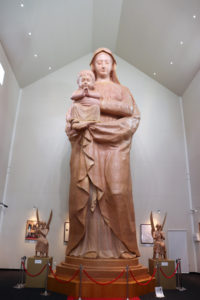 |
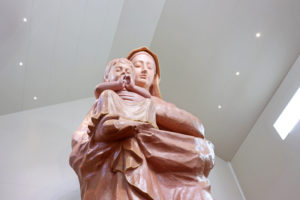 |
 |
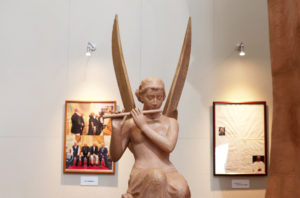 |
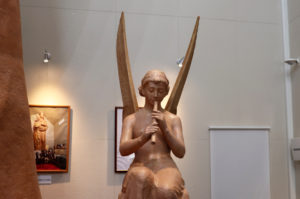 |
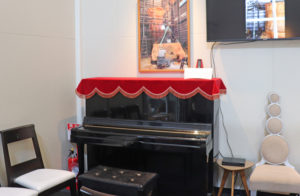 |
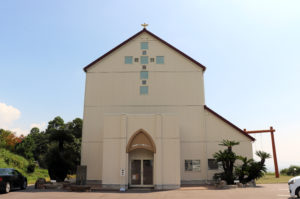 |
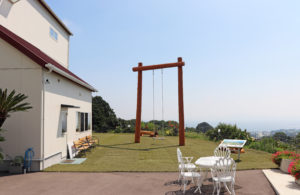 |
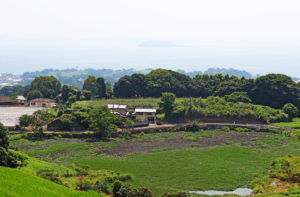 |
General information
| Address | Minamiarima-cho, Minami-Shimabara-city, Nagasaki-prefecture |
| Access |
50 minutes by a vehicle from Shimabara-city 50 minutes by a vehicle from Unzen-city 100 minutes by a vehicle from Nagasaki-city |
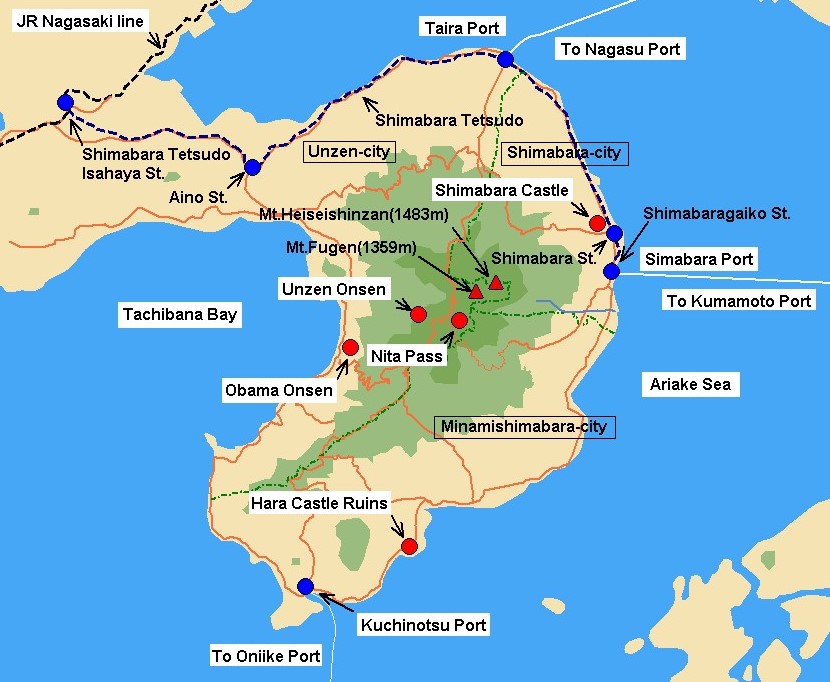
Harajo Castle ruins
This Tourist information is created by Japan KYUSHU Tourist for enjoyment
of your travel. We are a Travel Agent in Fukuoka specializing in Kyushu.
When you have an idea or a plan for traveling in Kyushu, Japan, please contact
us by sending an Enquiry.
The Christian pilgrimage site, registered on UNESCO’s World Heritage Site as Hidden Christian
Sites in the Nagasaki Region. The site is located in Minami-arima in Minami-Shimabara-city
and the Battle field of Shimabara Rebellion which was a peasant uprising against bakufu’s
persecution of Christians under the leadership of Amakusa Shiro in 1637.
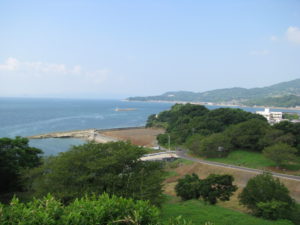 |
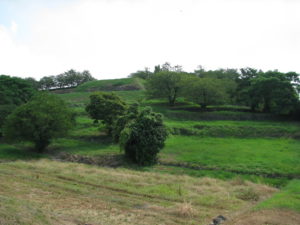 |
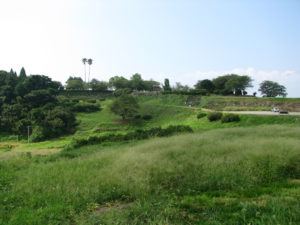 |
It was founded by Arima Takazumi in 1496 and was a flat castle with a fortress naturally created
both by the cliff facing Ariake Sea and the tide coming in. This Castle was abandoned since
Matsudaira.
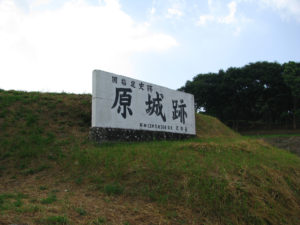 |
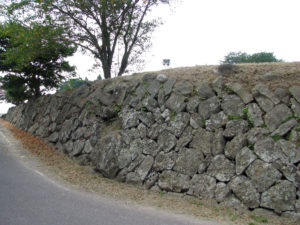 |
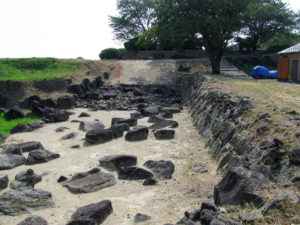 |
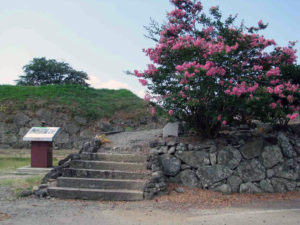 |
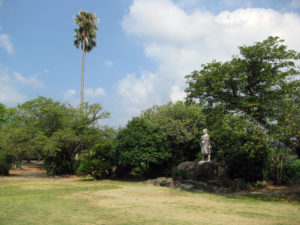 |
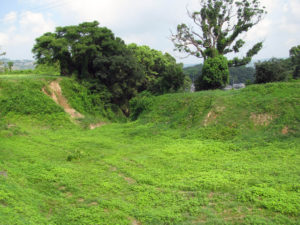 |
On February 27, 1638, he died in battle. The following day, the castle fell. 37,000 Christians
including women and children died a violent death. It is registered on the UNESCO World
Heritage asHidden Christian Sites in the Nagasaki Regionin 2018.
 |
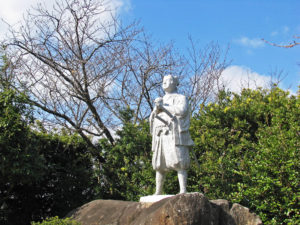 |
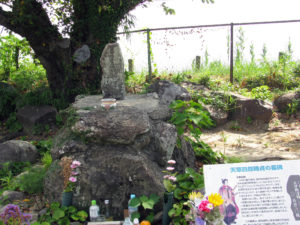 |
General information
| Address | Minamiarima-cho, Minami-Shimabara-city, Nagasaki-prefecture |
| Access |
50 minutes by a vehicle from Shimabara-city 50 minutes by a vehicle from Unzen-city 100 minutes by a vehicle from Nagasaki-city |

Shimabara Castle
This Tourist information is created by Japan KYUSHU Tourist for enjoyment
of your travel. We are a Travel Agent in Fukuoka specializing in Kyushu.
When you have an idea or a plan for traveling in Kyushu, Japan, please contact
us by sending an Enquiry.
Shimabara Castle, is located in Shimabara and was built in 1625 by the feudal load
Matsukura Shigemasa, who was regarded as a master of castle building. The castle,
which took 7 years to complete, is also known as “Moritake Castle”.
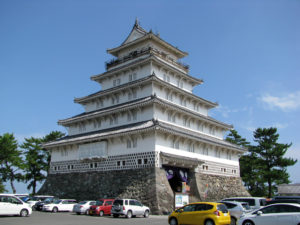 |
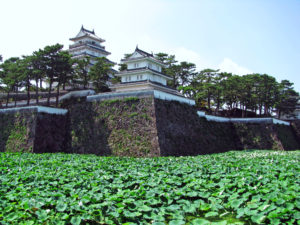 |
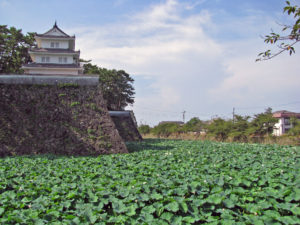 |
It was an almost rectangular flatland castle built in the Renkaku-style. Also, it was a superb example
of a castle where three layered yagura turrets were placed at strategic points around the five-layered
donjon which was influenced by the architectural style of the Azuchi-Momoyama period.
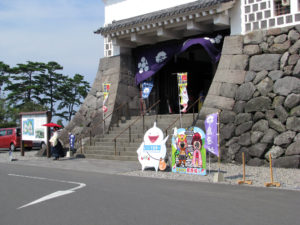 |
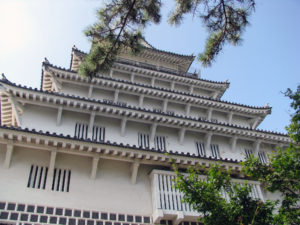 |
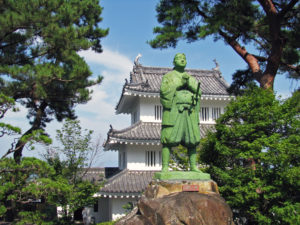 |
Through it was demolished in 1874 during Meiji Restoration, west turret called “Nishi-no-yagura”
was first restored in 1960 and the donjon was restored in 1964. In the castle, the Christianity
Museum has been established. Many Christian historical materials, local collection, and ethnic
collections are exhibited in the museum.
View from the Castle tower
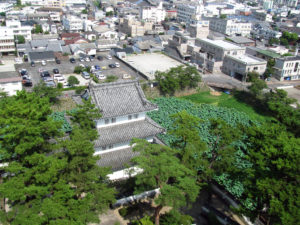 |
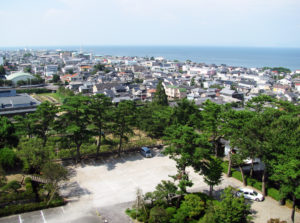 |
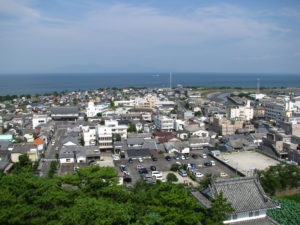 |
General information
| Address | 1-1183-1 Jonai Shimabara-city, Nagasaki-prefecture |
| Access |
80 minutes by vehicle from Nagasaki Airport 100 minutes by vehicle from Nagasaki-city 10 minutes walk from Shimatetsu Shimabara Station |
| Open hours | 9:00 to 17:30 |
| Admission fee | JPY 540 to enter the Castle tower |
| Days closed | December 29 and 30 |

Samurai Houses
This Tourist information is created by Japan KYUSHU Tourist for enjoyment
of your travel. We are a Travel Agent in Fukuoka specializing in Kyushu.
When you have an idea or a plan for traveling in Kyushu, Japan, please contact
us by sending an Enquiry.
Samurai was a term for the military nobility in pre-industrial Japan. The Samurai Houses in
Shimabara along the old Samurai street nearby Shimabara Castle were built in 18th century.
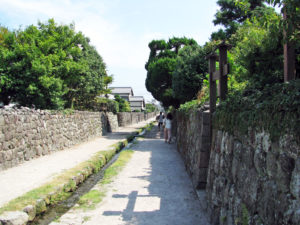 |
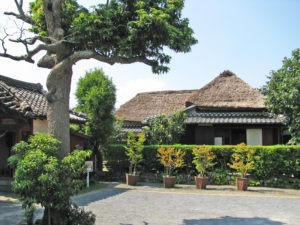 |
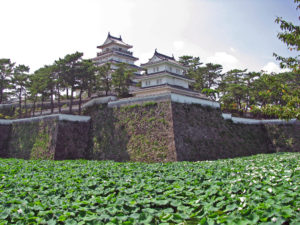 |
Three samurai houses, the Yamamoto residence, Shinozuka residence and Torita residence,
are opened to the public exhibiting the life style of old Samurai.
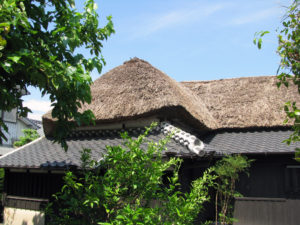 |
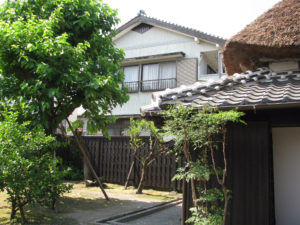 |
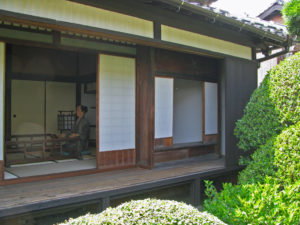 |
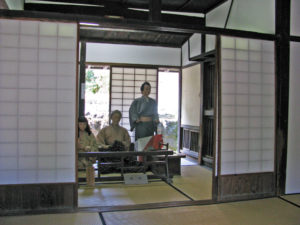 |
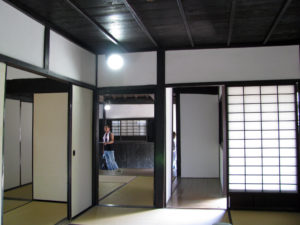 |
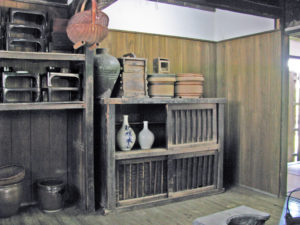 |
General information
| Address | Shimonocho, Shimabara-city, Nagasaki-prefecture |
| Access |
80 minutes by vehicle from Nagasaki Airport 100 minutes by vehicle from Nagasaki-city 15 minutes walk from Shimatetsu Shimabara Station |
| Open hours | 9:00 to 17:00 |
| Admission fee | No fee is required |
| Days closed | December 29 and 30 |

Shimabara Peninsula Martyrs Memorial Cathedral
This Tourist information is created by Japan KYUSHU Tourist for enjoyment
of your travel. We are a Travel Agent in Fukuoka specializing in Kyushu.
When you have an idea or a plan for traveling in Kyushu, Japan, please contact
us by sending an Enquiry.
This Cathedral is house of prayer for tens of thousands Christians who were martyred
between 1612 and 1658 throughout the Shimabara Peninsula.
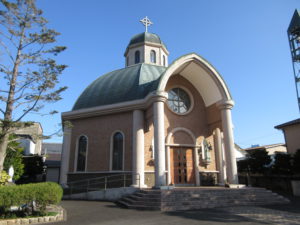 |
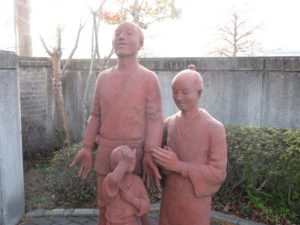 |
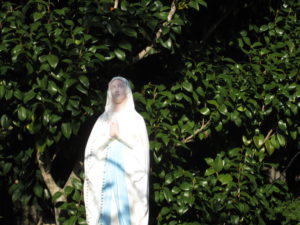 |
It was built in 1997 to commemorate the 400th anniversary of the martyrdom of 26
Japanese Saints and the 360th anniversary of the Shimabara Rebellion.
The Cathedral is a beautiful octagonal building with a large octagonal dome.

Hinoe Castle Ruins
This Tourist information is created by Japan KYUSHU Tourist for enjoyment
of your travel. We are a Travel Agent in Fukuoka specializing in Kyushu.
When you have an idea or a plan for traveling in Kyushu, Japan, please contact
us by sending an Enquiry.
During the period of the Southern and Northern Courts (1337-92), the Arima family ruling
the Shimabara Peninsula constructed a castle named Hinoe-jo. The 14th lord, Harunobu
(1567-1612) was a Christian daimyo and refurbished his castle into a large scale which had
gardens, a tea arbor and many rooms.
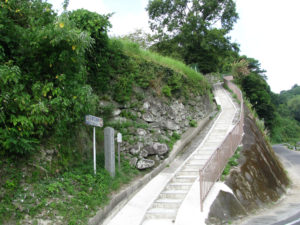 |
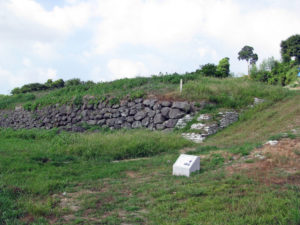 |
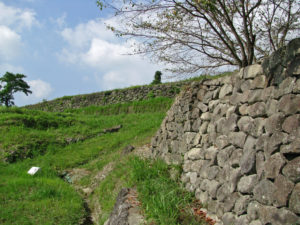 |
There remain stone walls around the site of the front gate. A recent survey reveals that the
construction materials including the stone steps were diverted from tombstones in Buddhist
grave-yards which the lord had demolished. The fact indicates the religious situation in those
days when Christianity was flourishing. In 1982, the location of the ruined castle was
designated as a National Historic Site.
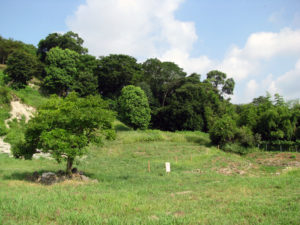 |
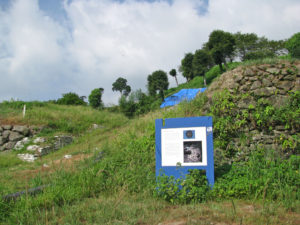 |
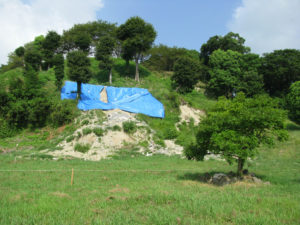 |

Arima Christian Heritage Memorial Museum
This Tourist information is created by Japan KYUSHU Tourist for enjoyment
of your travel. We are a Travel Agent in Fukuoka specializing in Kyushu.
When you have an idea or a plan for traveling in Kyushu, Japan, please contact
us by sending an Enquiry.
The Arima Christian Heritage Memorial Museum is a guidance facility showcasing
the history of Christianity in Minami-Shimabara, centered around the Hara Castle Ruins,
a component of the “Hidden Christian Sites in the Nagasaki Region,” which was
registered as a World Heritage Site in 2018. The museum offers easy-to-understand
explanations of the Hinoe Castle Ruins, which represent the period from the introduction
of Christianity to its prosperity, as well as the history of Christian persecution and the
Shimabara Rebellion.
The exhibits primarily feature videos, historical documents from both within and outside
Japan, and artifacts unearthed during excavations.
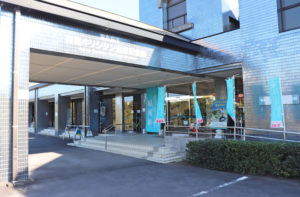 |
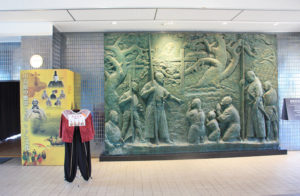 |
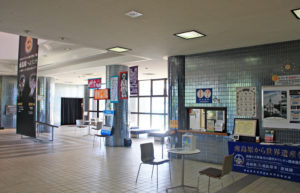 |
History of Christianity
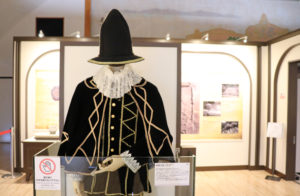 |
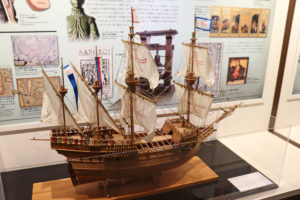 |
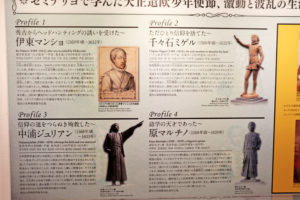 |
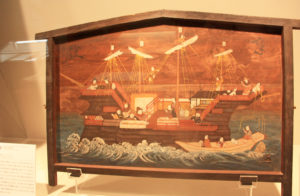 |
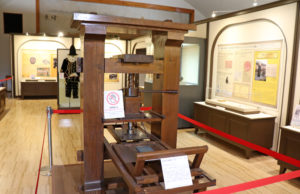 |
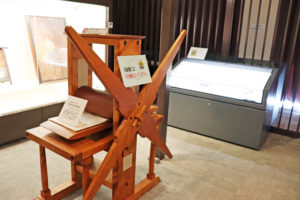 |
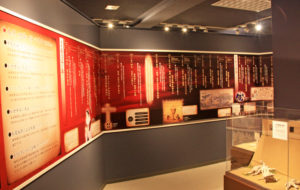 |
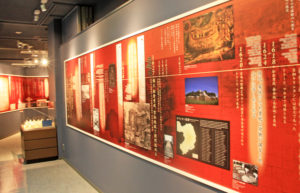 |
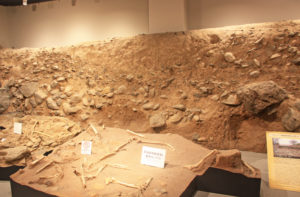 |

Samurai Street
This Tourist information is created by Japan KYUSHU Tourist for enjoyment
of your travel. We are a Travel Agent in Fukuoka specializing in Kyushu.
When you have an idea or a plan for traveling in Kyushu, Japan, please contact
us by sending an Enquiry.
Samurai street lined with stone walls and a spring water canal running down the center
commemorates the old samurai section of Shimabara. Three Samurai houses have been
restored and opened as exhibits.
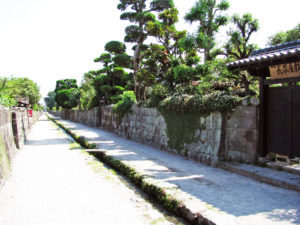 |
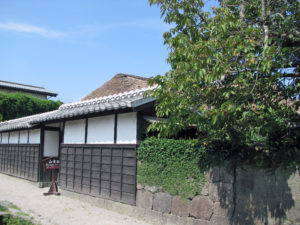 |
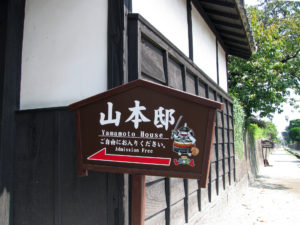 |
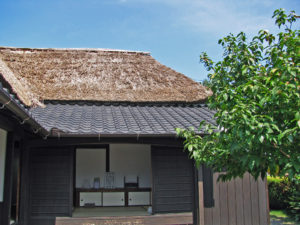 |
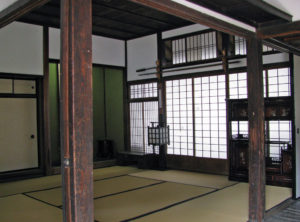 |
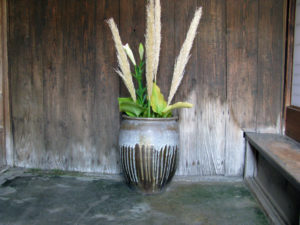 |
General information
| Address | Shimonocho, Shimabara-city, Nagasaki-prefecture |
| Access |
80 minutes by vehicle from Nagasaki Airport 100 minutes by vehicle from Nagasaki-city 15 minutes walk from Shimatetsu Shimabara Station |

Dolphins watching cruise
This Tourist information is created by Japan KYUSHU Tourist for enjoyment
of your travel. We are a Travel Agent in Fukuoka specializing in Kyushu.
When you have an idea or a plan for traveling in Kyushu, Japan, please contact
us by sending an Enquiry.
Let’s meet wild Dolphins. Approximately 300 wild Dolphins live in the sea between the Shimabara
Peninsula and Amakusa.
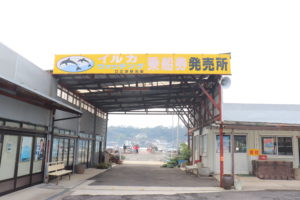 |
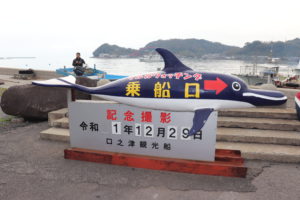 |
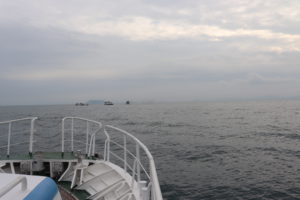 |
The dolphin watching cruises have become increasingly popular for all ages, especially because
it is possible to see the dolphins so close that you could almost touch them.
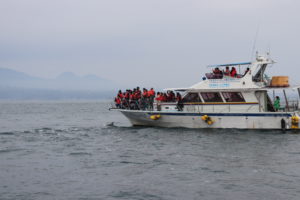 |
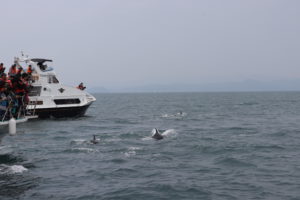 |
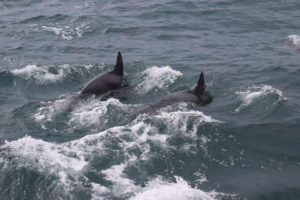 |
Join one of the various tours departing from Kuchinotsu or Kazusa to watch playful dolphins
frolicking in the sea.
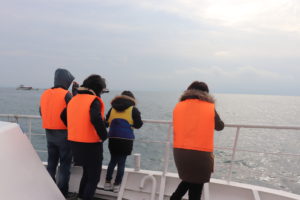 |
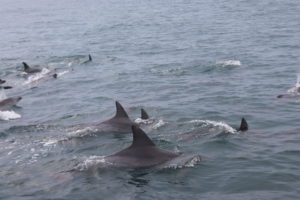 |
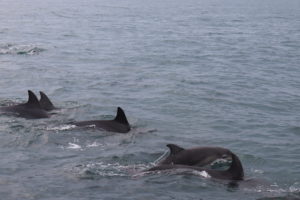 |

